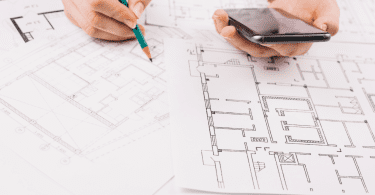Whether you own a historic home near downtown Gatineau or a new-build in Ottawa’s suburbs, plumbing problems are a near certainty at some point. Knowing what kinds of problems you could encounter and how to avoid them can save you thousands of dollars in repair expenses and structural damage, whether the problem is a small leak or a large pipe burst.
This guide takes a deep dive into the most common plumbing issues affecting homes in Gatineau and Ottawa. We’ll cover the causes, consequences, and solutions, while also discussing the importance of choosing trusted professionals to keep your system running smoothly.
Why Plumbing Problems Are Common in the Gatineau-Ottawa Area
The region’s unique combination of aging infrastructure, harsh winters, and varied building codes presents a higher risk of plumbing issues compared to other parts of Canada.
- Older Homes: Gatineau features many older homes with outdated pipes, such as galvanized steel or cast iron, both prone to corrosion and clogging.
- Freezing Winters: Wintertime below-freezing temperatures raise the possibility of frozen or burst pipes, particularly in houses without proper insulation or pipe protection.
- Seasonal Shifts: Frequent temperature changes cause pipes to expand and contract, potentially weakening joints and fittings over time.
- Urban Growth: Rapid development in parts of Ottawa can lead to inconsistent water pressure, construction-related pipe damage, or overwhelmed sewer systems.
These environmental and structural factors make plumbing in Gatineau a concern that should never be overlooked.
Top 10 Plumbing Problems Gatineau Homeowners Face
1. Burst Pipes
A burst pipe can flood your house in a matter of minutes, making it one of the most serious plumbing catastrophes. Pipes in crawl spaces, basements, or near exterior walls are particularly vulnerable.
How to prevent it:
- Insulate pipes before winter
- Keep indoor temperatures consistent
- Allow faucets to drip during extreme cold
2. Sewer Backups
Sewer system overflows often result from heavy rains, tree root invasion, or old clay piping collapsing underground. Warning signs include foul odours, gurgling toilets, and slow drainage across multiple fixtures.
3. Clogged Drains
Hair, grease, food waste, and non-flushables are usual suspects for drain blockages. While many clogs start small, neglect can turn them into complete system failures.
4. Running Toilets
Hundreds of liters of water might be wasted every day by a toilet that runs continuously. The issue typically lies in the flapper valve, fill valve, or float.
5. Water Heater Failure
Homeowners in Ottawa and Gatineau often experience loss of hot water due to sediment buildup or thermostat malfunction—especially during peak winter usage.
6. Frozen Outdoor Faucets
Garden hose bibs left attached in fall can trap water inside pipes, causing them to freeze and rupture. Until spring, these leaks are frequently overlooked.
7. Problems with Sump Pumps
Sump pumps are essential for preventing basement flooding in low-lying or riverfront homes. Power outages, aging parts, or overwhelmed pumps can all lead to costly damage.
8. Low Water Pressure
If your shower suddenly feels weak or your taps dribble, it could be a leak, a clog in the aerator, or issues in the municipal supply line.
9. Hidden Leaks
Water stains on ceilings or floors, mildew smells, or rising water bills can point to hidden pipe leaks. These are tricky to locate without professional help.
10. Faulty Plumbing Fixtures
From leaky faucets to cracked toilets, malfunctioning fixtures are more than cosmetic—they waste water and hint at deeper issues.
The Hidden Cost of Ignoring Plumbing Problems
Putting off plumbing repairs often leads to escalating costs. A small leak left unchecked can:
- Damage flooring, drywall, and insulation
- Lead to toxic mold growth
- Attract pests like silverfish and carpenter ants
- Weaken your home’s structural foundation
Beyond physical damage, it can also negatively affect home insurance claims. Many policies don’t cover water damage due to homeowner negligence.
DIY Fix or Call a Plumber?
While some issues—like a clogged sink or a dripping tap—can be addressed with basic tools and tutorials, others require licensed expertise. For example:
| Issue | DIY or Pro? | Why |
| Clogged toilet | DIY | Use a plunger or snake |
| Frozen pipe | Call a pro | Risk of pipe burst if not properly thawed |
| Leaky faucet | DIY | Most parts are easy to replace |
| Sewer backup | Call a pro | Needs camera inspection and heavy equipment |
| Water heater issue | Call a pro | May involve electrical or gas systems |
Preventive Maintenance Tips
- Schedule annual inspections – A plumbing check-up can catch problems before they escalate.
- Know your shut-off valve – Learn how to turn off your main water supply in case of emergencies.
- Install leak detectors – Smart sensors can alert you to hidden moisture behind walls or under appliances.
- Flush your water heater – Once a year, drain it to remove sediment buildup and extend lifespan.
- Don’t ignore “minor” signs – Gurgling, damp smells, and minor leaks are often red flags.
Choosing the Right Plumbing Professionals
You need more than just a wrench and good intentions when something goes wrong. Choosing qualified plumbers ensures safety, code compliance, and long-lasting fixes.
Here’s what to look for:
- Valid licensing and insurance
- Good reviews and local referrals
- Transparent pricing
- Experience with both residential and commercial systems
- Emergency availability
One trusted local provider is Delta Plumbers in Gatineau, known for their reliable diagnostics and prompt service. Whether it’s leak detection or drain cleaning, their certified team can help with everything from minor fixes to large-scale plumbing emergencies.
When to Call for Emergency Plumbing in Ottawa
There are situations where waiting until “normal business hours” is simply not an option. Here are some examples of when to call emergency plumbing in Ottawa:
- Major leaks or burst pipes
- No running water in winter
- Sewer line backups into the home
- Gas line smells or suspected leaks
- Flooding caused by failed sump pumps
Always have the number of a 24/7 emergency plumbing service in Ottawa saved in your phone to prevent panic when things go wrong.
Plumbing Code Updates in 2025
Gatineau and Ottawa continue to update building regulations to reflect greener, safer infrastructure. Recent changes include:
- Mandatory backwater valves on all new residential sewer lines
- Water-efficient fixtures required for new builds and renos
- Stricter guidelines for underground pipe replacement
- Electronic permitting systems to speed up plumbing approvals
Working with plumbers who stay updated with these regulations ensures your home meets compliance standards important for resale and insurance.
Future Trends: Smarter Plumbing
More homeowners in the Ottawa-Gatineau region are embracing smart tech for their plumbing:
- WiFi-enabled sump pumps that alert your phone
- Leak detection devices with auto shut-off capabilities
- Tankless water heaters for on-demand usage
- Touchless faucets and low-flow toilets
These upgrades not only reduce water usage but also help identify problems early—protecting your investment long term.
Final Word: Stay Ahead of Plumbing Problems
In Gatineau and Ottawa, staying proactive about your plumbing can protect your home’s value, lower utility costs, and prevent disruptive emergencies. Whether you’re dealing with minor inconveniences or facing a larger crisis, the right strategy is always preparedness and prompt action.
If you’re unsure where to begin or suspect an issue may be lurking below the surface, reach out to professionals from Delta Plumbers with the tools and knowledge to help. Check out the website to know more: https://deltaplumbersottawa.com/





